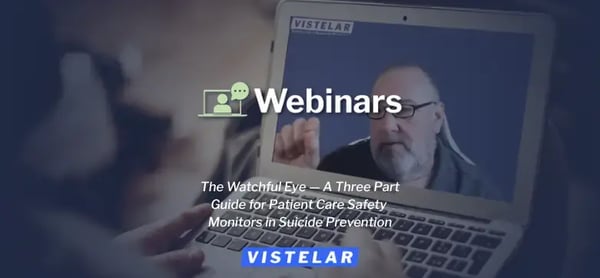Beyond crowded malls, family safety extends to vehicles, shopping habits, and home security. Criminals often exploit holiday distractions, making these areas especially important.
Posts about Education
Guarding Loved Ones in Public and Crowded Spaces
Crowds are a hallmark of the holiday season. Whether at a Christmas market, shopping mall, or holiday parade, families often find themselves shoulder-to-shoulder with strangers. While most people are harmless, these environments can be overwhelming and risky for children and elderly family members.
Protecting the Ones You Love When It Matters Most
The holiday season brings joy, laughter, and gatherings of family and friends. Yet, it also brings larger crowds, heavier shopping traffic, and an increased risk of children or vulnerable loved ones becoming separated. In these moments, a clear family safety plan can mean the difference between panic and protection.
Key Takeaways from Vistelar’s October Webinar
In this October webinar, Dave Young discussed how Patient Care Safety Monitors play a critical role in suicide prevention. The session focused on how these team members help identify early warning signs, maintain patient dignity during high-risk situations, and support clinical teams through consistent presence and effective communication. Presenters also shared practical strategies and...
Good Speak: Non-Escalation Strategies for Healthcare—Podcast
“Good Speak: Non-Escalation Strategies for Healthcare” — Episode 35
Co-host: Marcus—former healthcare security director
Co-host: Natalie—nurse practitioner and clinical team leader
Subscribe to our podcast on Apple Podcasts or Spotify
Seconds Matter—Emergency Response, Self-Care, and Staying Ready
This article is Part 3 of a three-part series on the importance of Patient Care Safety Monitors. Click here to read Part 1, or click here to read Part 2.
Every second counts in a suicide prevention crisis. For Patient Care Safety Monitors, knowing exactly what to do—and staying mentally and emotionally prepared to do it—can be the difference between life and loss. This final article explores...
Beyond the Chart—How Communication & Documentation Save Lives
This article is Part 2 of a three-part series on the importance of Patient Care Safety Monitors. Click here to read Part 1, or click here to read Part 3.
Patient Care Safety Monitors do far more than watch. Every word they speak and every note they write can calm fear, expose risk, and even prevent tragedy. When monitors pair trauma-informed communication with clear, factual documentation, they...
Understanding the Role of Patient Care Safety Monitors
This article is Part 1 of a three-part series on the importance of Patient Care Safety Monitors.Click here to read Part 2, or click here to read Part 3 .
In today's healthcare environment, the role of Patient Care Safety Monitors has become increasingly vital, especially in preventing suicide and ensuring the safety of emotionally distressed patients. These professionals are far more than...
Beyond Words: Mastering Non-Verbal Communication in Medical Settings
In healthcare environments, what you don't say can be just as powerful as what you do say. Research shows that approximately 93% of communication is affected by body language and non-verbal cues, making your silent signals a critical component of patient care. For healthcare professionals, mastering non-verbal communication isn't just about improving patient satisfaction—it's about creating...
Red Flags: Spotting Antecedents to Prevent Workplace Violence
The stark reality facing healthcare leaders today is undeniable: 81.6% of nurses report having experienced at least one type of workplace violence in the past year, with 45.5% reporting an increase in incidents in their units. This is especially alarming when you consider that less than a third of healthcare facilities have clear workplace violence incident reporting mechanisms in place. Perhaps...










